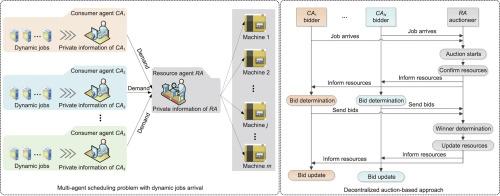In the futuristic landscape of artificial intelligence, regulating the ethical and responsible use of this powerful technology poses a unique challenge. Enter auction-based regulation – a novel approach that harnesses market forces to shape the behavior of AI systems. Join us as we explore this cutting-edge concept, its implications, and its potential to revolutionize the way we govern AI in the digital age.
Innovative Approach to Regulating Artificial Intelligence
Imagine a world where the regulation of artificial intelligence is determined through an innovative auction-based system. This unique approach would involve AI developers bidding on specific guidelines and restrictions for their AI systems, with the highest bidder being awarded the right to operate their AI within those parameters. This auction-based regulation system would not only ensure that AI developers take responsibility for the potential risks associated with their creations but also create a competitive environment that encourages the development of safe and ethical AI technologies.
By implementing an auction-based regulation system for artificial intelligence, regulators would have a dynamic and flexible tool for continuously monitoring and updating AI guidelines. This system would allow for real-time adjustments based on the evolving capabilities and risks associated with AI technologies. Additionally, it would incentivize AI developers to prioritize safety and ethical considerations in their development process, as failing to do so could result in losing the right to operate their AI within the desired parameters. Ultimately, this approach could lead to a more responsible and accountable AI industry that fosters innovation while protecting society from potential harm.
Maximizing Efficiency and Fairness through Auction-Based Regulation
In the world of artificial intelligence, achieving both efficiency and fairness is crucial. Auction-based regulation offers a unique solution that can help balance these two objectives. By implementing auction-based regulation, stakeholders can ensure that resources are allocated in a way that maximizes efficiency while also promoting fairness in the market.
Through auction-based regulation, companies can bid for the right to access certain resources or capabilities, ensuring that the highest bidder gains access. This not only incentivizes companies to operate more efficiently but also ensures fair competition by giving all players an equal opportunity to participate. By embracing auction-based regulation for artificial intelligence, policymakers can create a more level playing field that benefits both businesses and consumers.
Ensuring Accountability and Compliance in AI Development
When it comes to ensuring accountability and compliance in the development of artificial intelligence, innovative approaches are necessary. One such approach that has been gaining traction is auction-based regulation. This method involves auctioning off permits or licenses for the development and deployment of AI technologies, with the goal of incentivizing companies to comply with regulations and ethical standards.
By implementing auction-based regulation, companies are forced to consider the costs of non-compliance, as losing their permit could result in significant financial losses. This system also encourages transparency and fairness in the AI development process, as companies are held accountable for their actions. Additionally, auction-based regulation can help level the playing field for smaller companies, ensuring that compliance with regulations is accessible to all players in the AI industry.
Challenges and Opportunities of Implementing Auction-Based Regulation in AI Industry
The implementation of auction-based regulation in the AI industry presents both challenges and opportunities that must be carefully considered. One of the main challenges is ensuring fair and transparent bidding processes that prevent monopolies and promote competition. Additionally, setting appropriate reserve prices for AI technologies can be complex, as their value is often difficult to quantify accurately.
However, auction-based regulation also offers unique opportunities for regulatory bodies to incentivize innovation and drive the development of ethical AI technologies. By leveraging market forces, regulators can encourage companies to invest in research and development that aligns with societal values and priorities. Furthermore, auctions can facilitate the efficient allocation of resources, ensuring that AI technologies are deployed where they can have the greatest positive impact.
Closing Remarks
As we navigate the ever-evolving landscape of artificial intelligence, it becomes increasingly clear that traditional regulatory approaches may not suffice. Auction-based regulation offers a unique and innovative solution to the challenges posed by AI technology. By harnessing market forces to incentivize ethical behavior and ensure compliance, we pave the way for a more transparent and accountable AI industry. As we look towards the future, let us embrace the potential of auction-based regulation to shape a responsible and ethical AI ecosystem. The dawn of a new era in AI regulation is upon us, and the possibilities are as limitless as the technology itself. Let us seize this opportunity to shape the future of artificial intelligence for the betterment of society as a whole.
